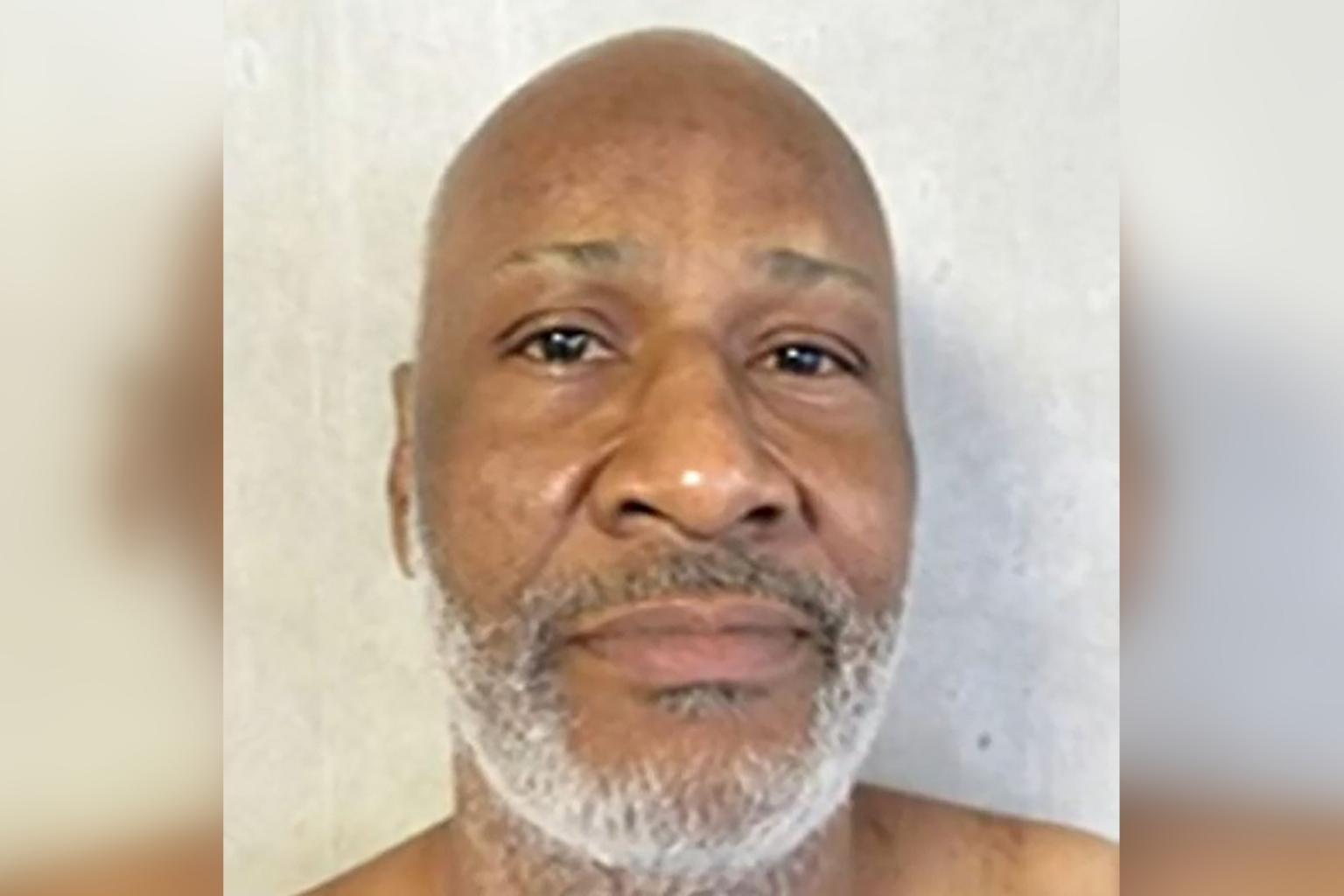Oklahoma carries out first execution in six years
Sign up now: Get ST's newsletters delivered to your inbox

John Grant's death marked the first in Oklahoma since three botched executions in 2014 and 2015, using a three-drug protocol that has been questioned as possibly causing a slow and painful death.
PHOTO: AFP
OKLAHOMA CITY (REUTERS) - Condemned Oklahoma prisoner John Grant convulsed and vomited before dying from a cocktail of drugs on Thursday (Oct 28) as the state conducted its first execution in years despite questions about its lethal injection protocol, a witness to the death reported.
Grant, 60, died by lethal injection at 4.21pm (5.21am Singapore time on Friday), the state said.
It was Oklahoma's first execution since three botched attempts - including one that was called off because the wrong drug had been supplied - led to a halt in 2015.
The three-drug cocktail is meant to first render the recipient unconscious and unable to feel pain, followed by others that lead to death.
But a media witness said Grant had convulsed two dozen times and vomited before dying.
"As the drugs began to flow, the first drug, midazolam, he exhaled deeply," Mr Sean Murphy said in a news briefing posted online.
"He began convulsing, about two dozen times, full body convulsions."
Vomit covered his face until a prison official wiped it off, Mr Murphy said.
Mr Dale Baich, one of the attorneys representing Grant, called Thursday's execution "problematic."
"There should be no more executions in Oklahoma until we go to trial in February to address the state's problematic lethal injection protocol," he said.
Grant had been a plaintiff in a lawsuit set to go to trial next year challenging the three-drug protocol as inhumane, but the state refused to postpone his execution to accommodate the case.
The Oklahoma Department of Corrections said that Grant's execution was carried out in accordance with its protocols and without complication.
After Grant died on Thursday, his lawyer Sarah Jernigan said he had tried to atone and understand his actions "more than any other client I have worked with".
She said he was a victim of brutality both at home and at the hands of Oklahoma's youth detention system, and did not receive mental health treatment, ultimately murdering prison employee Gay Carter in 1998 while incarcerated for another crime.
The last-minute intervention from the United States Supreme Court overturned a stay of execution for Grant and Julius Jones, who is scheduled to be put to death on Nov 18.
Jones, 41, was sentenced to death for murdering an insurance executive gunned down in his driveway.
He has maintained his innocence for two decades, in a case that has attracted attention from celebrities and anti-death penalty activists.
In ordering the state to delay the executions on Wednesday, a three-judge panel of the Tenth Circuit Court of Appeals said a lower court had unfairly denied the two men delays granted to numerous other defendants pursuing a lawsuit that challenges the constitutionality of the state's three-drug lethal injection protocol.
But the Supreme Court on Thursday vacated that stay without commenting further on the case.
Lawyers for Grant and five other condemned prisoners had argued that the state violated their right to religious liberty by asking them to name an acceptable method of execution, which the prisoners said forced them to participate in their own deaths.
They also argued that Oklahoma's newest lethal injection protocol is too similar to a prior method that led to three botched executions.
The planned executions run counter to trends in most US states, where the use of capital punishment is declining.
Thirty-six US states and the District of Columbia have either abolished the death penalty or have not carried out an execution in the past 10 years, according to the Death Penalty Information Centre, which tracks executions.
Oklahoma's planned executions "are occurring against the backdrop of ongoing litigation over whether they're even constitutional, and historically low rates of new death sentences nationwide", said Mr Robert Dunham, executive director of the Death Penalty Information Centre.
Conservative states including Texas and Missouri, however, have bucked that trend, as did the conservative administration of Republican former US President Donald Trump, which resumed federal executions in 2020 after a 17-year hiatus, putting 13 prisoners to death, beginning with Daniel Lewis Lee on July 14.
The local archdiocese of the Roman Catholic Church, which opposes the death penalty, asked followers to pray for the condemned men and for an end to capital punishment during the time set for the execution.


